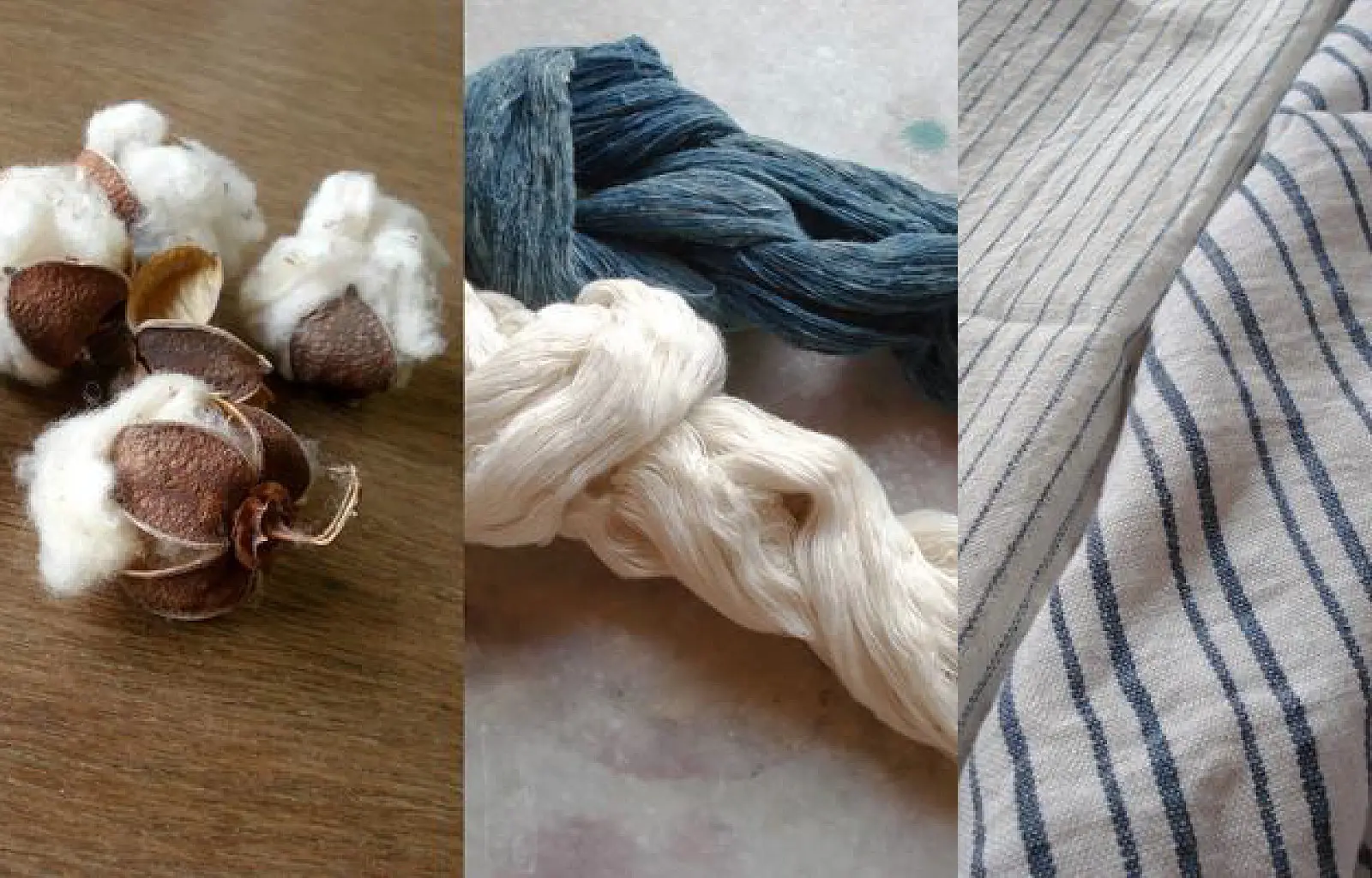COVID 19 AND ITS IMPACT ON FASHION CHOICES
For the Fashion Industry, 2020 was the year of change. While we are still recovering from the aftershock of the pandemic, a growing awareness and concern can be seen among the public where the fragility of the planet is concerned.
Sustainability issues are attracting attention at an executive level. Some 50% of fashion executives in a recent opinion poll indicated that sustainability has moved up the agenda in the past few months indicating that the fashion industry has to change and change fast.
The rising global demand for textiles has made natural fibres both scarce and expensive. Business models are actively responding to sustainability challenges by seeking improved alternatives, mainly circular end products and cleaner production models.
One such product is the ‘Kala cotton' a recently revived ancient variety of genetically pure cotton.
1 Based on an average weight of 10 gram of a 0.5 litres PET bottle
Source: KEMI, Chemicals in textiles: Risks to human health and the environment (2014), p.33; World Bank, AQUASTAT, and FAO, Dataset: Annual freshwater withdrawa/s, total (2014); Circular Fibres Initiative analysis

“IN COTTON PRODUCTION, NON - RENEWABLE RESOURCE INPUTS CAN BE REDUCED BY INTRODUCING REGENERATIVE AGRICULTURAL PRACTICES, WHICH DO NOT USE SYNTHETIC PESTICIDES OR FERTILISERS.”
DESIGNED FOR CIRCULARITY
By 2050 it is anticipated that the fashion industry will use up 25 per cent of the world’s carbon budget, making it one of the most polluting industries, second only to oil.
According to Fashion for Good, cotton production consumes 1/6th of all pesticides globally. Local communities and farmers are impacted globally as a result of chemicals sprayed on individual cotton. The World Health Organization claims that almost 20,000 individuals lose their lives annually due to cancer and suffer miscarriages, as a result of these chemicals.
With cotton being one of the most used fabrics in the world, it is important that we find a sustainable alternative to the modern cotton. An ancient form of cotton has recently been revived by textile enthusiasts globally and primarily in India. In the face of rising planetary challenges, Kala Cotton - a pride of Indian handloom since 3000 BC is making a comeback due to its chemical free and rain fed properties.
It is emerging as a suitable alternative to its resource intensive American peer (BT cotton) which is told to be 90% more water and chemical intensive than the former.
“COTTON AS A CROP WREAKS HAVOC WITH BOTH PEOPLE AND PLANET EVEN BEFORE IT’S TURNED TO CLOTHING”

In the traditional market systems of Kutch in India, farmers and weavers worked together to create beautiful, organic and soft cotton of durable texture. Kutch has seen the advent and the decline of local, old world cotton.
AMBIO-N(CircularSource) has partnered with artisans from Kutch who have been an integral part of this glorious legacy. Besides empowering artisans, we aim at working with marginalized communities and promoting rain fed and sustainable cotton on our global marketplace.
Choose Circular - Make a Difference

